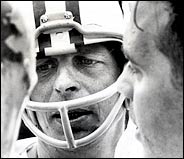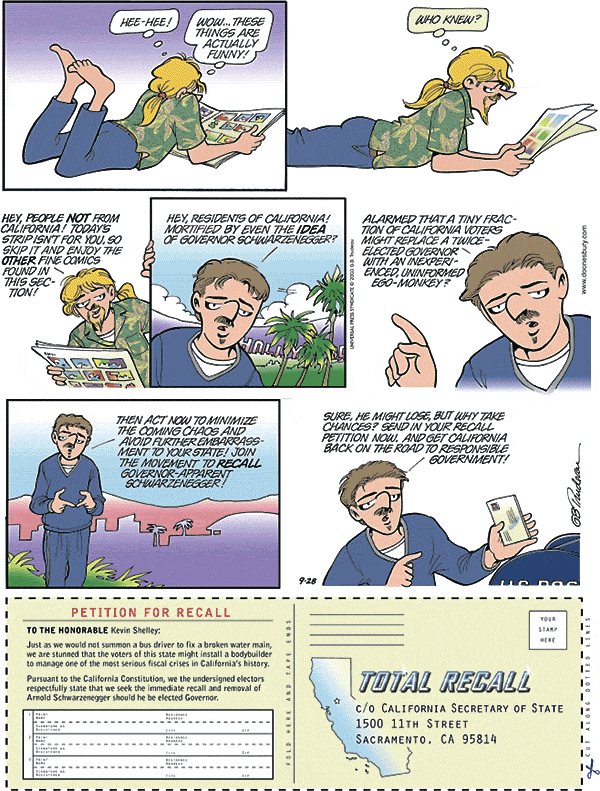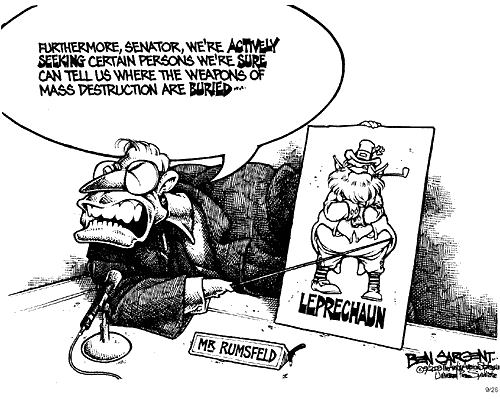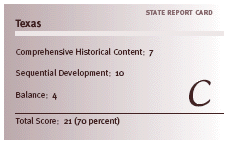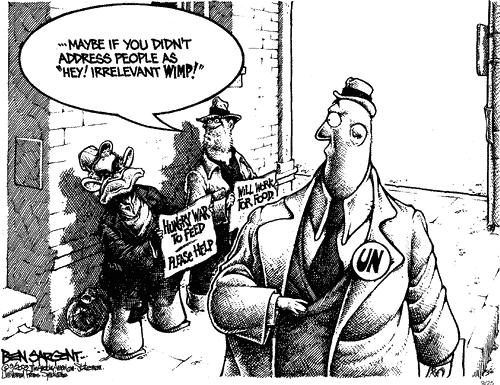What — indeed — would Jesus do at Baylor? I hear the word H-Y-P-O-C-R-I-T-E-S echoing in my head. The Baylor mess is one of the reasons I have foresworn watching student athletes cavort for the masses. Another mess is the Ohio State nonsense with oral exams for an idiot running back. One of my favorite professors at the University of Denver — Alfred Crofts — said in class in 1960 that the Soviets had it right. The premier athletes in the old Soviet Union were treated as trained animals with no pretense of amateurism. That is what should be done in the United States. The present athletic structure is corrupt all of the way down to kiddie sport. We have lost our souls. If this be (fair & balanced) blasphemy, so be it.
[x CHE]
POINT OF VIEW
What Would Jesus Do at Baylor?
By ALAN WOLFE
Baylor University is not the only institution of higher education that has found itself embarrassed by transgressions in its athletics program. True, its lapses have been more serious than altering student transcripts or providing illegal stereos, the usual fare of National Collegiate Athletic Association violations. One of Baylor's basketball players, Patrick J. Dennehy, was murdered; another, Carlton E. Dotson, was arrested and charged with the crime; and their coach, Dave Bliss, resigned after being taped plotting to accuse Dennehy of dealing drugs to support himself in college. (Dennehy may not have needed to deal drugs, because he was allegedly being paid cash under the table, in violation of NCAA rules.) Still, alumni and athletics supporters at most universities, and especially those in Texas, have considerable clout, and, other things being equal, Baylor could be expected to recover under the leadership of a new athletics director and basketball coach.
But other things in this case are not equal, for Baylor has made clear that it does not want to be like most other American universities. "Baylor is founded on the belief that God's nature is made known through both revealed and discovered truth," reads the university's mission statement. At Baylor, religious statements like that are not just boilerplate. Baylor's president, Robert B. Sloan Jr., a Baptist preacher, puts Christian commitments into practice. He interviews faculty candidates to determine their fidelity to Christian ideals and established a center that gave prominence to "intelligent design," the evangelical-Christian alternative to Darwinism. According to his "Baylor 2012" plan for the university's future, "within the course of a decade, Baylor intends to enter the top tier of American universities while reaffirming and deepening its distinctive Christian mission."
Christianity, as Baylor and its president frequently point out, constitutes a set of beliefs about the truth. But it is also an ethical system and a way of life, which is why Baylor, again according to its mission statement, "seeks to provide an environment that fosters spiritual maturity, strength of character, and moral virtue." For many Christians, behaving well is as important as thinking right; when deciding about when life begins, or whether violence is justified, they frequently ask, "What would Jesus do?" Not, "What would Jesus conclude?"
Inevitably, therefore, the question has to be asked: If he were at Baylor, what would Jesus do? Would he respond to the basketball scandals by emphasizing "moral virtue" and "spiritual character"? Or would he dig in his heels and try to protect Baylor and its leadership in the same way that any secular institution would?
To this point, one can find little specifically Christian about the way events have unfolded at Baylor. The day after the tape of his coach's remarks about Patrick Dennehy was released, Baylor's president issued a statement that was anything but confessional in tone: Blame was heaped on Bliss rather than acknowledged by those who, like Sloan, had hired and previously supported him. As is usually the case when scandal hits, an internal investigation was promised. Otherwise, the president's statement could have been written by officials at Enron. It contained not one word about sin -- seeming to convey, by that omission, the sin of pride -- nor did it invoke such Christian ideals as atonement or redemption.
Baylor's Board of Regents has also not shown itself to hold any particular Christian character in its approach to the issue. In the aftermath of the scandal, five regents, the Faculty Senate, the editorial board of the Lariat, the student newspaper, and three former board chairmen asked for Sloan's resignation. Those pleas were rejected by the full board on September 12. At most universities in the United States, trustees tend to support incumbent presidents, and that was certainly the case here.
Whatever took place in private discussions, the board's public actions were little different from those of corporate boards, which rarely subject CEO's to scrutiny. If anything, morality seems to matter outside of Baylor more than it does inside. Recently, the board of the New York Stock Exchange agreed to pay its chief executive, Richard Grasso, almost $140-million in salary and deferred benefits -- this at a time when many Americans are having difficulty making ends meet. Grasso was soon forced to resign, in part because critics like California State Treasurer Phil Angelides called on the exchange to restore its "moral authority."
Nor has the Baylor faculty responded to the crisis in a faith-based manner. The senate's call for Sloan's resignation reportedly had more to do with unhappiness over his hands-on administrative style than with any violation of the Ten Commandments. Like faculty members in most institutions, moreover, many professors objected to Sloan's attempts to raise Baylor's academic profile, fearful, perhaps, that his emphasis on research would undermine the character of the undergraduate-oriented university that Baylor once was. When a faculty censures a president, it is nearly always because faculty members do not like the way the administration treats them, not because the president lacks moral virtue.
Finally, there are the students. Most of them, it appears from news accounts, disagree with their own newspaper and support Sloan. But that seems to have more to do with the desire of students, even very religious ones, to move through their college years quickly and without trouble. It is hard to find a more conservative force anywhere in America than a typical student body, especially when that student body finds itself deep in the heart of Texas.
However Baylor has responded to its crisis, there is the further question of whether a religious institution should be held to a higher ethical standard than a secular university. One possible answer is that it should not. Just as believers should have the same rights as nonbelievers -- a position adopted by the U.S. Supreme Court in Rosenberger v. Rectors and Visitors of the University of Virginia (1995) -- some people would conclude that holding religious institutions to a higher standard than secular ones constitutes a form of invidious discrimination. To that legal point could be added a moral, even a religious, codicil: Those anxious to point the finger of blame at Baylor had best look first at their own institutions, for, in an imperfect world, one should be reluctant to cast the first stone.
In the case of Baylor, however, such a response is not fully satisfactory. No doubt Baylor's Christian identity is sincerely offered; I have been there, talked with students and faculty members, and have come away impressed by the devotion and commitment that the institution radiates. Still, Baylor's religious identity serves secular as well as godly purposes. "From a purely marketing perspective, the idea of a Protestant Christian university playing in the big-time academic world of ideas while maintaining quality teaching gives Baylor a unique niche in American higher education," wrote Barry Hankins, a history professor at the university, about the "Baylor 2012" plan.
Hankins is right: Baylor's Christian niche has been good for the place. Worried parents sometimes choose Baylor over other institutions because they believe that drinking and sex will be kept under control there. Wealthy alumni might be tempted to give more to the extent that they are persuaded that Baylor will not come under the sway of "liberals" and "secularists," as conservatives in Texas often call those with whom they disagree. While some faculty members have left the university because they find its religious atmosphere too confining, others I know have accepted positions there because they want to teach at a place that makes faith central to its mission. In a decidedly religious country -- indeed, in a country whose born-again president maintains a ranch roughly 24 miles from Baylor -- having a Christian identity can help win significant support. Many an American university would be thrilled to have so well defined and successful a niche as its Christian commitments have given Baylor.
Because it benefits so substantially from its Christian character, Baylor all but invites judgment by the same criteria. That does not mean that its president should give up his job and salary to don sackcloth and seek penance in the Mojave Desert. But it does suggest that he, as well as the Baylor Board of Regents, might learn something from the Roman Catholic Church's crisis in Boston. Under the leadership of the recently appointed Archbishop Sean Patrick O'Malley, the Boston Archdiocese has acknowledged its error of covering up sexual abuse by its clergy, made a sincere and generous financial offer to the victims of the abuse, and conducted itself with impressive humility. O'Malley's obviously sincere efforts have not yet repaired the damage of the scandal, but they have begun the long process of healing essential to the restoration of trust.
In asking that Baylor act by the same Christian principles that it professes, critics of the university, far from discriminating against it because of its religious character, are doing it a favor. The very marketing advantages that Baylor derives from its Christian identity are threatened when it acts like any other institution on the defensive. Just as it has taken a leadership role in attempting to integrate faith and learning, Baylor should be in the forefront of trying to blend virtue and conduct. It would be unseemly for anyone to benefit from murder and cover-up, but the university's president, its regents, and faculty and staff members have been offered a remarkable opportunity by this crisis to show Americans that religion really matters. In acting as if it matters not at all, they have, perhaps unwittingly, provided ammunition to those who believe that Christians all too often invoke their religion only when it works to their advantage, and not when it ought to lead them to make serious changes in the ways they lead their lives.
Alan Wolfe is director of the Boisi Center for Religion and American Public Life at Boston College. His books include The Transformation of American Religion: How We Actually Live Our Faith (Free Press, 2003).
Copyright © 2003 by The Chronicle of Higher Education
